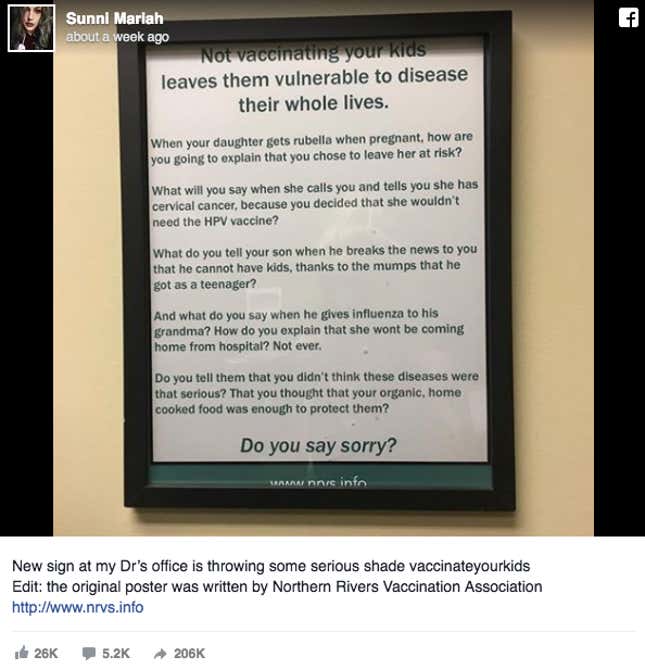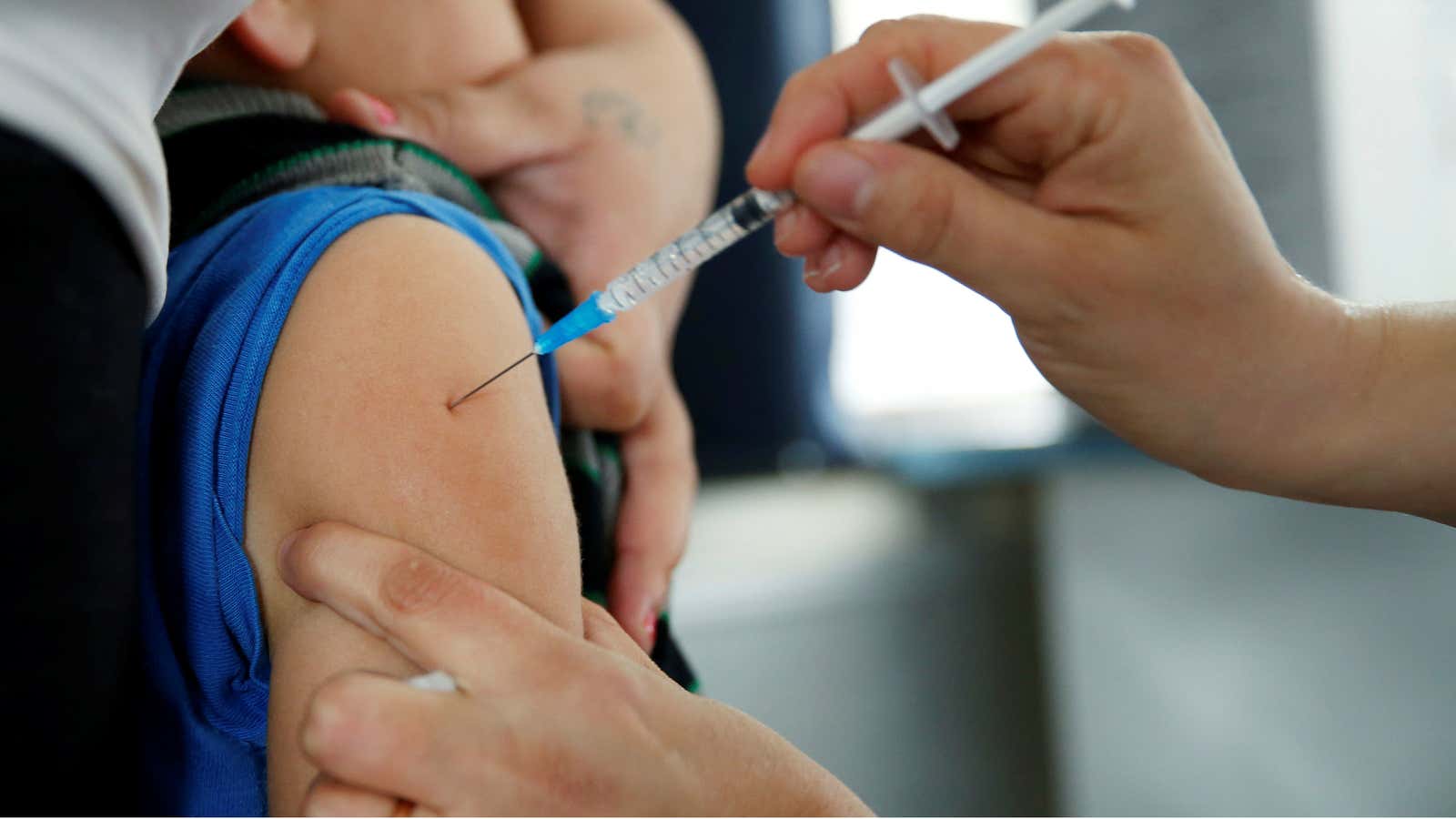Australian doctor Rachel Heap has seen people suffer from diseases that could have been prevented by vaccines throughout her career. She’s got a direct message for parents who refuse routine shots for their children—and it’s making waves across the internet.

A patient snapped a photo of the sign above, which was originally written by Heap for the Northern Rivers Vaccination Supporters website, at her doctor’s office. The Facebook post featuring Heap’s warning has since been shared more than 200,000 times.
Heap’s call to arms is based on her experiences working in intensive care. She remembers one baby who died from whooping cough, and another with whooping cough who spent six months in intensive care, and may always be dependent on oxygen. Having seen so much unnecessary death and illness, she helped establish the Northern Rivers Vaccination Supporters group and spends her spare time campaigning against the so-called anti-vaxxer movement. She wrote the message featured on the sign in response to the idea that parents have a “right to choose” whether or not to vaccinate their kids.
“I kept hearing loads of comments about the parent’s right to choose and stuff like that, almost like the kids were possessions,” she tells the Australian women’s website Mamamia. “To me, it’s all about the rights of the child. These diseases can impact on their whole lives.
“You don’t get to choose whether your kid wears a seat belt. There’s stuff in place to protect children. You don’t own your children. That upset me.”
The misinformed belief that the measles, mumps, rubella (MMR) vaccine causes autism was inspired by a 1998 study published in the Lancet by British gastroenterologist Andrew Wakefield. In 2010, the journal retracted Wakefield’s study, announcing that it was “utterly clear, without any ambiguity at all, that the statements in the paper were utterly false.” Wakefield’s medical license was revoked, and it’s clear that there is no connection between vaccines and autism. According to the US Centers for Disease Control and Prevention, the vaccines received by kids born between 1994 and 2006 will prevent 381 million diseases, 24.5 million hospitalizations and 855,000 deaths in their lifetime.
But the efficacy of vaccines depends on collective action. According to Slate:
Measles vaccines are about 95 percent effective when given to children. That leaves a 5 percent chance that kids who are vaccinated will contract measles. This means that no matter what, the disease still poses a public health risk, but we rely on others to get vaccinated to hugely reduce the likelihood of outbreaks. That’s the process known as herd immunity.
Heap notes on the pro-vaccination website that she understands parents who refuse vaccines have good intentions. “But to make an informed decision,” she writes, “it is vital to not only understand the data that decision will be based on, but also to have to skills to determine whether the data is credible, accurate and up to date.”
